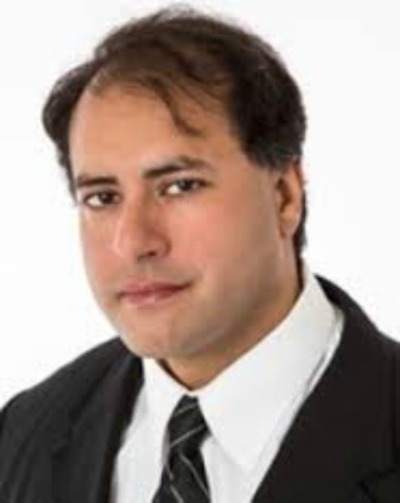Turks Glorify Historic Slaughter and Rape of Christians

Earlier this week a news report unwittingly demonstrated how Turkey—once deemed the most "secularized" Muslim nation—is returning to its Islamic heritage, complete with animosity for the infidel West and dreams of the glory days of jihadi conquests:
A group of devout Muslims from across Turkey prayed before the city's historic Hagia Sophia on the 562nd anniversary of the Turkish conquest of Istanbul [Constantinople], demanding that the site be turned back into a mosque.
Men and women from across the country gathered before the Hagia Sophia museum early May 31, as part of an event organized by the Anatolian Youth Association (AGD) with the motto "Break the chains, Open Hagia Sophia," and prayed the morning prayer with a call for the reconversion of the museum into a mosque.
In fact, this is an annual ritual. Thousands of Turks surround Hagia Sophia every May and call for it to become a mosque—often to Islam's war-cry, "Allahu Akbar!"
This is not about a "minority of radicals." In a survey conducted with 401 Turks, more than 97 percent wanted Hagia Sophia to be turned into a functioning mosque. Nor is this about Muslims needing a place to pray. As of 2010, there were 3,000 active mosques in Istanbul alone.
Rather, this is about Muslims wanting to revel in the glory days of Islamic jihad and conquest.
Unlike historically-challenged Westerners, Muslims fully understand the significance of Hagia Sophia. Hagia Sophia—Greek for "Holy Wisdom"—was, in fact, Christendom's greatest cathedral for almost one thousand years. Built in Constantinople, the heart of the ancient Christian empire, it was also a stalwart symbol of defiance against an ever encroaching Islam from the east.
After parrying centuries of jihadi thrusts, Constantinople was finally sacked by the Turks under Sultan Mehmet II on May 29, 1453. Its crosses desecrated and icons defaced, Hagia Sophia—as well as thousands of other churches—was converted into a victory mosque, the tall minarets of Islam surrounding it in triumph.
Reading the primary historic texts from the period is not unlike reading current headlines concerning Islamic State atrocities—the massacres, beheadings, rapes, enslavement of Christian "infidels" and the defilement of their churches. Writes an eyewitness to the 1453 Turkish conquest of Constantinople:
The enraged Turkish soldiers . . . gave no quarter. When they had massacred and there was no longer any resistance, they were intent on pillage and roamed through the town stealing, disrobing, pillaging, killing, raping, taking captive men, women, children, old men, young men, monks, priests, people of all sorts and conditions… There were virgins who awoke from troubled sleep to find those brigands standing over them with bloody hands and faces full of abject fury… [The Turkish jihadis] dragged them, tore them, forced them, dishonored them, raped them at the cross-roads and made them submit to the most terrible outrages…
Tender children were brutally snatched from their mothers' breasts and girls were pitilessly given up to strange and horrible unions, and a thousand other terrible things happened. . .
Temples [including Hagia Sophia] were desecrated, ransacked and pillaged . . . sacred objects were scornfully flung aside, the holy icons and the holy vessels were desecrated…. Immense numbers of sacred and profane books were flung on the fire or torn up and trampled under foot.
This is what Turkey's Muslims are proud of. Salih Turhan, head of the Anatolian Youth Association, the group that annually organizes mass demonstrations around Hagia Sophia, boasts that, "As the grandchildren of Mehmet the Conqueror, seeking the re-opening Hagia Sophia as a mosque is our legitimate right."
Turks know full well that Mehmet was the scourge of European Christendom; that his hordes seized and ravished Constantinople, forcibly turning it into Islamic Istanbul; that he had the fallen corpse of the Christian emperor, Constantine, who refused to forsake his besieged city, beheaded, mutilated, and mocked. Openly idolizing Mehmet and other sultans, as many Turks do, is tantamount to their saying, "We are proud of our ancestors who slaughtered, beheaded, enslaved and raped people and stole their lands simply because they were Christian 'infidels.'"
More contemporarily, it's tantamount to their saying "We are proud of our fellow Sunni Muslims of the Islamic State—who are currently slaughtering, beheading, enslaving, and raping people simply because they are Christian "infidels."
Such pride in Islamic atrocities goes all the way to the top in Turkey, to President Erdogan, who claims that the jihadi conquest of Constantinople was the true "time of enlightenment."
Still, none of this stops Turks from claiming victim status. The Anatolian Youth Association still manages to blame the West: "Keeping Hagia Sophia Mosque closed is an insult to our mostly Muslim population of 75 million. It symbolizes our ill-treatment by the West."
So keeping a historically Christian/Western building—that was stolen by bloody jihad—as a museum is seen as "ill-treatment by the West."
Similarly, last April, after Pope Francis accurately referred to the mass slaughter of Armenians by Ottoman Turks as "the first genocide of the 20th century," Ankara's highest Islamic authority responded by saying that the Pope's remarks "will only accelerate the process for Hagia Sophia to be re-opened for [Muslim] worship."
Such is the Islamic world's double standards: when Muslims conquer non-Muslim territories, such as Constantinople and its churches—through fire and steel, with all the attendant human suffering and misery—the descendants of those conquered are not to expect any apologies or concessions—not even a building.
However, once the same Muslims who would never concede an inch of Islam's conquests are on the short end of the stick—Palestinians vis-à-vis Israel, for example—then they resort to the United Nations and the court of public opinion, demanding "justice," "restitution," "human rights," and so forth.
It's a testimony to the blindness and historic ignorance of the West that more people are not onto this old Muslim game yet.





















